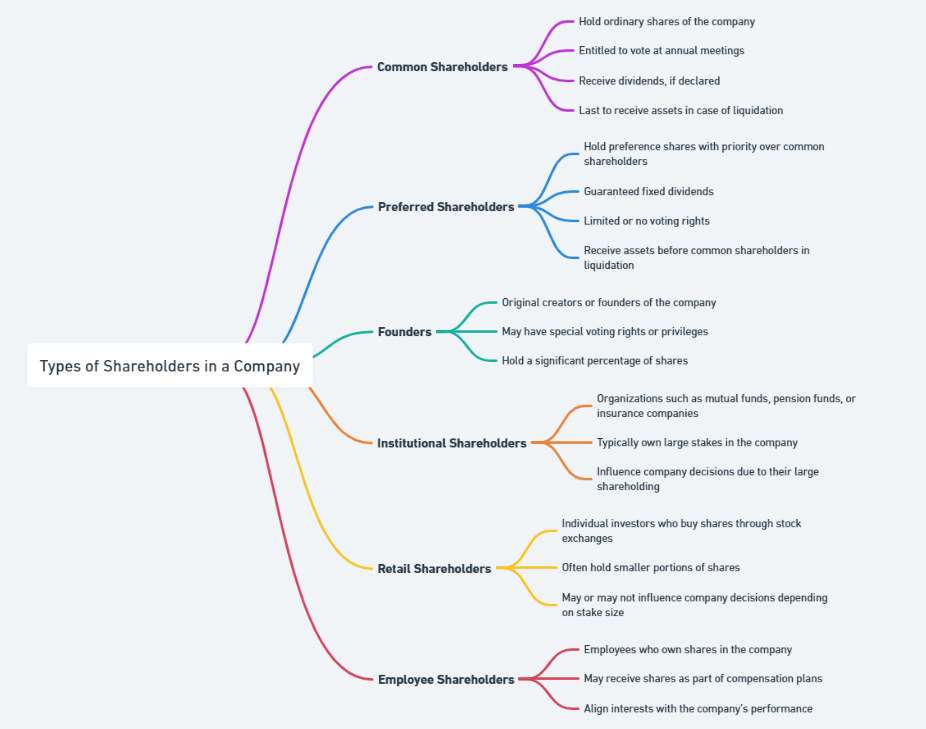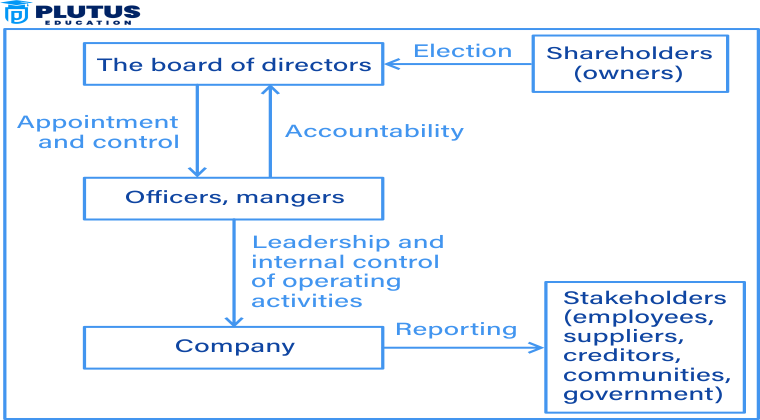Becoming a shareholder in a company can be a thrilling investment for one looking to invest in the stock market or private companies. Either way, whether you need to know how to be a shareholder or are getting shares for the first time, this guide will give you the process step-by-step. The most common question that individuals who are interested in stock market participation or are looking to diversify their investment portfolio is how to become a shareholder.
Simply, a shareholder is just any person or organization who has shares or stocks with a company. The shareholders represent a share of that company’s ownership, and a shareholder is entitled to different rights, such as exercising his or her right by voting on the matters involved in the company and may also receive dividends if this company distributes them. More than just buying a couple of stocks, becoming a shareholder involves more methods as this depends on whether a public company or a private company is involved.
Who is a Shareholder?
Before diving into how one can become a shareholder, it is necessary to know what a shareholder is. A shareholder is an individual, group, or institution owning shares in a company. Shares, often referred to as stock or equity, are a claim on ownership of a company, and the shareholders are entitled to specific rights such as voting rights on matters related to the corporation and receiving dividends when applicable. In return for owning shares, shareholders essentially become partial owners of the company, thus sharing in its successes and risks in case the company fails.
A shareholder’s main interest is in the potential for financial gain. They can make money through capital appreciation, which is when the value of their shares increases, or through dividends, which are periodic payments made by the company to its shareholders from its profits. Shareholders can buy or sell shares based on the company’s performance, market conditions, and investment strategies.
As the owners of the company, shareholders have a right to attend general meetings and vote on key company decisions and even influence corporate policy to some extent. The extent of influence, however, varies with the type of shareholder. Let’s look into the different types of shareholders in more detail.
Types of Shareholders in a Company
Shareholders can be categorized in terms of relationship to the company and possible investment aim. Knowing the kinds of shareholders in a corporation will provide you better insight regarding their various roles in the business world.
1. Common Shareholders
The common shareholders are the common type of shareholders. They either represent themselves or an organization owning a share that makes them vote at shareholders’ general meeting. The common shareholder would receive liquidation payouts only after those at other ranks and stands at risk to gain if the enterprise prospers. On profits, common shareholders take payouts in form of dividend by the company but are neither obligated nor assured of these.
2. Preferred Shareholders
Preferred shareholders hold preferred stock. These shares usually do not possess voting rights. On the other hand, such a shareholder has a claim of higher rank over the assets and profits compared to common shareholders. In case the firm is liquidated, these shareholders get paid before common shareholders are paid. Preferred shareholders are also entitled to a fixed dividend payment, which is usually a more stable form of investment than common stock.
3. Institutional Shareholders
Institutional shareholders represent large organizations such as mutual funds, pension funds, insurance companies, and hedge funds that hold significant shares of a given company. These large institutions commonly invest large sums of money into a company and usually carry influence through direct engagement with the board as well as voting power.
4. Retail Shareholders
Retail shareholders are those individual investors who buy shares for personal investment purposes. Such shareholders usually own fewer shares than institutional shareholders and do not participate in the company’s day-to-day activities. Retail shareholders can range from small-time investors to high-net-worth individuals who purchase stocks as part of their investment portfolio.
5. Majority vs. Minority Shareholders
Majority shareholders are those owning more than 50% of the shares of the company. They have control over the majority decisions within the company. The minority shareholders, however own fewer shares and therefore have fewer significant decisions within the organization. The share proportion of the shareholder is what decides his control of the companies activities.

How Do You Become a Shareholder in a Company?
It is relatively easy to become a shareholder in a company. There are several ways through which you can buy shares, and the method will depend on whether you are investing in a public company or a private one. This section will cover how to become a shareholder in both types of companies and the various ways you can purchase shares.
Investing in Private Companies
Investing in private companies is slightly more complicated than investing in public companies. Private companies do not list their shares on public stock exchanges, so there isn’t an open market in which to buy and sell shares. Shares in private companies are generally sold only to a small group of investors.
To become a shareholder in a private company, you would need to:
- Find a private company ready to invest: It can either be a start-up firm or an already established one. Some private companies opt for private offerings, meaning they will accept certain investors purchasing shares in the private offering.
- Join an investment round or fund: Private companies raise capital through funding rounds such as seed rounds, venture capital, or private equity. Through this, you can purchase shares as an investor as part of the funding round.
- Negotiate terms and finalize your investment: Once you decide to invest, you will need to negotiate the terms of your investment with the company, which could involve buying a specific number of shares at a fixed price.

Investing in Public Companies
Investing in public companies is much simpler, especially if you have access to the stock market. Here’s how you can become a shareholder in a public company:
- Open a Brokerage Account: One should have a brokerage account if one wants to buy shares in public companies. A brokerage firm is the intermediary that brings you together with the stock market so that you can buy and sell shares.
- Deposit Funds into Your Account: The account opened will need money to make the purchase, after which there will be a deposit of funds in the account. Depending on the brokerage firm used, you can deposit by bank transfers, checks, or other means of payment.
- Select the Stocks You Want to Buy: You can browse through stocks and decide which companies to invest in after funding your account. You can purchase shares of companies listed in stock exchanges such as NYSE or NASDAQ.
- Place an Order: After you have chosen the stocks you want to buy, you place an order with your broker. You can choose from different types of orders. For example, you may place a market order or a limit order. A market order will buy shares at the current price, while a limit order sets a price at which you’re willing to buy.
- Monitor Your Investment: Once the purchase is complete, you have become a shareholder in that company. You can monitor its performance through your brokerage account and sell your shares any time you want.
Making a Purchase through a Brokerage Firm
A high proportion of individual investors purchase the share on brokerage, as an intermediary that links buyers with those offering to sell their shares on stocks. Some popular brokerage firms are E*TRADE, TD Ameritrade, Charles Schwab, and Robinhood. Their business models ensure that easy access to the stock market with easier steps towards building portfolio starts.
To buy shares through a brokerage firm, follow these steps:
- Choose a brokerage firm: Choose a reputable company, which can be commission-free or charges per trade.
- Establish an account: To open a brokerage account, one would require specifying some personal and financial information, including their Social Security number.
- Fund Your Account: A person needs to fund it by depositing money after opening the account. This money can be transferred from their bank account or even using their credit/debit card.
- Select Your Shares: Having funded your account, you’ll be able to search for any stocks of the companies that you want to invest in. Most brokers allow the filtering of stocks based on market trends, sector, or performance.
- Order Placement: Place an order to buy the shares at a price you are willing to pay. You can set a limit or buy at market.
- Investment Management: The good broker will provide a mechanism for monitoring your portfolio and managing your investments. That means monitoring the performance of the stocks.
How to Become a Shareholder FAQs
What is the difference between a common shareholder and a preferred shareholder?
A common shareholder owns common stock and has voting rights but comes after preferred shareholders in terms of asset distribution in case of liquidation. Preferred shareholders own preferred stock, receive fixed dividends, and have a higher claim on company assets but usually don’t have voting rights.
Can I become a shareholder in a private company?
Yes, you can become a shareholder in a private company, but the process is more complex. You would need to find a private company that is offering shares and join a funding round, such as a venture capital round. Private companies typically invite a select group of investors to purchase shares.
How do I buy shares in a public company?
To buy shares in a public company, you need to open a brokerage account, fund the account, select the shares you want to buy, and place an order through your broker. You become a shareholder in the company, after purchasing the shares.
What are the types of shareholders in a company?
There are several types of shareholders, including common shareholders, preferred shareholders, institutional shareholders, retail shareholders, and majority or minority shareholders. Each type has different rights and responsibilities, such as voting rights and claims on company assets.
Do I need a broker to buy stocks?
Yes, you need a broker to buy stocks on the stock market. A broker acts as an intermediary between you and the stock market, allowing you to place orders and purchase shares. Many online brokers now offer low-fee or commission-free trades.


